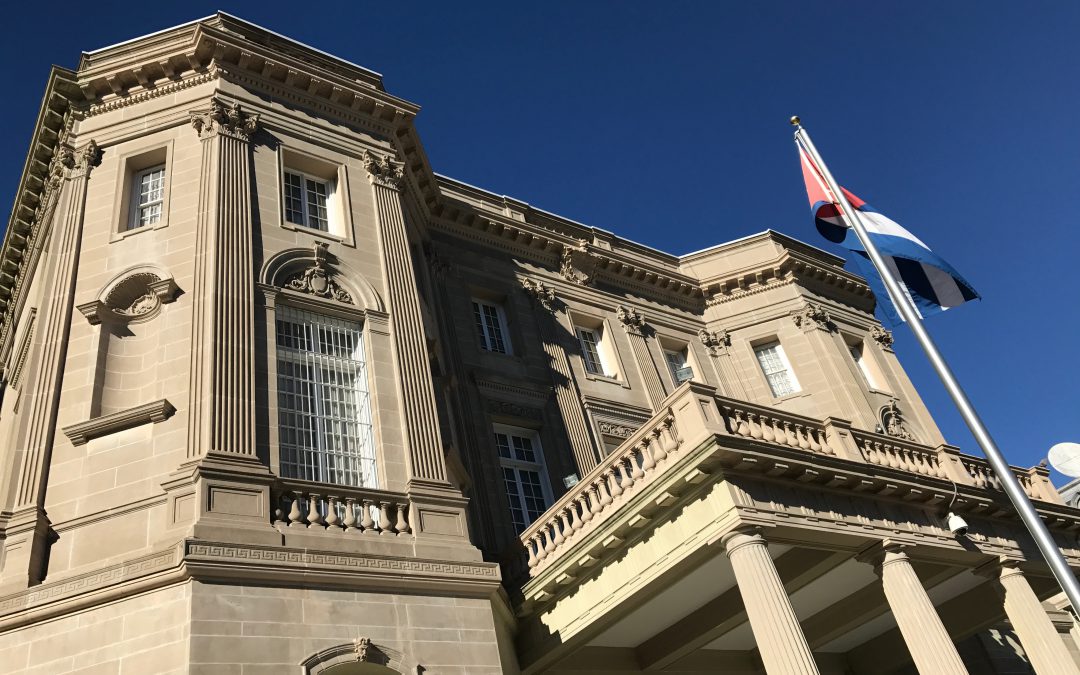WASHINGTON — With the election of Donald Trump as the next U.S. president, and the death of Cuban leader Fidel Castro, the Cuban government’s goal to revitalize its private sector with strong foreign-direct investment may have moved a bit further out of reach.
“There is a lot of uncertainty,” said Pavel Vidal, a former analyst at the Central Bank of Cuba, the country’s national bank. “On China, Mexico, Europe, Trump gave mixed signals during his campaign. At the beginning, he appears to be very open to continue the Obama approach to Cuba.”
But later, Vidal said, Trump gave a speech in Miami “to please the hard-liner Cuban-Americans.” In that speech, Trump threatened to “cancel Obama’s one-sided Cuban deal, made by executive order, if we do not get the deal that we want,” adding that an agreement would have to include more political freedom on the island and the release of political prisoners.
While the U.S. has had a formal embargo against Cuba since the late 1950s, on Dec. 17, 2014, President Barack Obama announced America would begin steps to normalize the relationship between the two countries. Over the past two years, Obama has issued a series of executive actions renewing relations, including removing Cuba from the U.S. State Sponsors of Terrorism list and the reopening of embassies in both Washington, D.C., and Havana.
Vidal, now a professor of economics at Universidad Javeriana in Colombia, said once Obama began normalizing relations, the process launched a lot of expectations in Cuba, “especially for foreign investors.” If the embargo was ever fully lifted, it would clear the last major hurdle for foreign investors looking at Cuba.
Manufacturing and biotechnology are among the more robust Cuban industries. But just before the U.S. election – without explanation – the Cuban government told two U.S. businessmen to drop their plans to manufacture tractors in Mariel, an economic zone financed with help from Brazil and located in the northwest part of the island. The plant was slated to be the first U.S. factory in Cuba since 1959.
The uncertainty surrounding trade relations doesn’t bode well for foreign investment, which craves stability.
At the country’s annual trade fair in Havana earlier in November, Foreign Commerce Minister Rodrigo Malmierca said the country has approved about $1.3 billion in projects in the more than two years since laws to bolster foreign investment were approved. The country hopes to hit $2 billion in foreign investment annually; so far, the government has failed to reach even half of its goal.
Malmierca said he hopes to speed up the pace of negotiations to help come closer to its target.
Carmelo Mesa-Lago, professor of economics at the University of Pittsburgh and author of a new book on the non-state sector in Cuba, said of the over 400 projects the Cuban government has made available for investment, only 14 have been approved since the reforms were enacted two years ago. Of those, about half were given to firms that already did business in Cuba.
Of completely new investments, Mesa-Lago said, “Maybe you have seven or eight, and it’s going very slowly.”
On Monday, the president-elect named Mauricio Claver-Carone to his transition team for the U.S. Department of the Treasury, which the Treasury website says “administers and enforces economic and trade sanctions” based on U.S. foreign policy. Claver-Carone leads in the Washington-based U.S.-Cuba Democracy Political Action Committee, which opposes the lifting of economic sanctions unless the island nation releases political prisoners and adopts human rights reforms.
Jorge Duany, director of the Cuban Research Institute at Florida International University, thinks a Hillary Clinton administration would have likely followed the trajectory started by Obama two years ago. But her surprise defeat means there are more unknowns for the relationship.
“At this point, frankly, it’s too early to tell [about Trump],” Duany said. “The embargo will at some point have to be lifted. It’s unclear now whether that will happen in the next administration, given the political configuration of Congress.”
Only Congress has the power to lift completely the American embargo on Cuba, which covers nearly all American imports to the island. Obama’s executive actions easing some of the restrictions could be reversed by President-elect Trump shortly after taking office, although Obama has tried to make his directives lasting by issuing written guidelines sent to federal agencies.
Some Cuban-Americans would prefer that Trump walk back Obama’s executive actions.
“Mr. Trump has vowed to stand with those struggling for freedom over their oppressors,” Rep. Mario Diaz-Balert, R-Fla., said in a statement in October. “He has pledged to reverse President Obama’s disgraceful policy of appeasing dictators, and to vigorously assert America’s security and democratic interests across the globe.”
But a majority of Cuban-Americans support ending the embargo, according to the 2016 Florida International University Cuba Poll.

Mesa-Lago sees two major problems affecting the Cuban economy: the ongoing crisis in Venezuela, and falling prices for nickel and sugar, two of Cuba’s largest exports.
As one of Cuba’s largest trading partners, Venezuela plays an outsized role in Cuba’s economy. But Caracas is beset by its own problems at the moment, largely stemming from lower oil prices globally and a government dealing with unrest at home. This has forced Venezuela to cut its oil supplies to Cuba, buy fewer professional services and reduce its investment in the island, Mesa-Lago said in a phone interview. It’s a situation that only compounds losses created by the low sugar and nickel prices.
The biggest impact the incoming Trump administration could have isn’t on commodity prices or Cuba-Venezuela trade issues, but on tourism between the U.S. and Cuba.
“The best news for Cuba is tourism,” Mesa-Lago said. The number of Americans heading to Cuba could reach 200,000 this year, thanks in part to the ease of restrictions on travel Obama ordered, which include removing the restriction on the amount of alcohol and tobacco Americans can bring back from the island, well-known for its rum and cigars.
In January, President Trump could reverse all of those changes.


